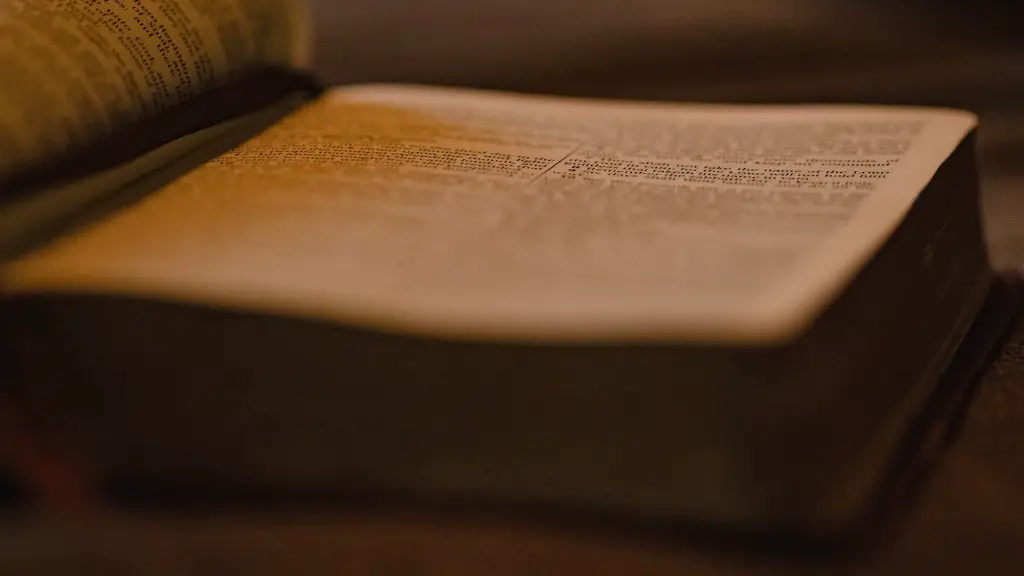Walt Whitman is considered one of the most influential poets in American history. He was born on May 31, 1819 in West Hills, New York, to a working-class family. His father was a carpenter and his mother was a devout Quaker. Despite his humble beginnings, Whitman would go on to become a groundbreaking poet, considered to be the “father of free verse.”
Whitman had a natural love for the written word and was encouraged to read and write early on in life by his family. At the age of six, Whitman began attending school and, by the age of 12, was writing poetry. It seemed clear even in his early works that Whitman was destined for greatness.
It wasn’t until 1855, when Whitman was 36 years old, that his most famous collection of poetry, Leaves of Grass, was published. The book was an immediate success, as it was unlike anything ever read before it. Whitman’s use of free verse was revolutionary and captivated readers across the world. Leaves of Grass captured the essence of American life and became an instant classic.
Though Whitman’s poetry was initially praised, it was eventually met with criticism. His work contained phrases and references that were deemed inappropriate for the conservative 19th century. For example, Whitman was even sued for obscenity in 1882. Despite negative reactions from certain members of society, his poetry was eventually put on display in public libraries. Whitman’s contributions to the literary world eventually led to him becoming one of the most famous poets of all time.
Today, the genius of the late Walt Whitman continues to live on. His work has inspired numerous authors, poets, and philosophers. He is remembered for his free verse, which was an innovation of its time. His poetic structures, which opted for an improvisational approach rather than a structured one, would set the standard for contemporary poetry.
Influence on Poetic Style
Walt Whitman’s influence on American poetry is vast and long-lasting. He spearheaded the use of free verse, where rhythm and meter were sacrificed for individual lines that seemed to flow with the emotions of the poet. Although his contemporaries did not wholeheartedly accept his style at the time, it inspired a generation of poets to experiment in the pursuit of truth and feeling in their work.
Whitman’s prose and poetry were integral in the emergence of modern poetry as an art form. His works introduced characteristic topics including death, love, and spirituality, as well as addressing social issues such as slavery and imperialism.
Free verse poetry was and has remained a popular form of poetic expression and is today embraced by many talented poets. Whitman’s iconic works have become synonymous with what free verse is, and the poet is seen as a pioneer of the style. He has influenced the way that the world has interpreted poetry ever since.
Influence on Sound
Although not as renowned, Walt Whitman is also credited with changing the way music was heard. Through his writing style, he was able to evoke emotion and create a soundscape that was akin to a piece of music. When his works were read aloud, they felt like a piece of music, as the rhythm and imagery all seemed to evoke the feelings he was attempting to express.
Whitman was conscious of the fact that, aside from the written word, sound was an important factor in conveying emotion. His use of sound in his works led to him being one of the first poets to use the two in conjunction. He was able to use poetic devices such as alliteration, assonance and onomatopoeia in creative ways to build sound and emotion.
Whitman’s influence on the sound of poetry is still heard today. His style and techniques are used by many poets to create haunting and beautiful pieces of work. His works have been studied heavily by academic scholars, who have had to develop methods to accurately analyze Whitman’s rhythmic structures.
Reception and Legacy
Whitman’s works have been analyzed, praised and critiqued by literary theorists and poets alike. Though his works were not always accepted, they are now thought of as some of the best in the English language. He was seen as a brave visionary, creating poetry that pushed the boundaries of traditional understanding, and was often compared to his more conservative counterparts such as Emily Dickinson.
The influence of Walt Whitman’s works has been felt for over a century and will continue to be felt for years to come. His poetry and prose has inspired future generations of writers, who attempt to capture the same spirit and intensity of emotion that Whitman was able to evoke with only words.
The legacy of Walt Whitman will always remain with us through his passionate words and his revolutionary approach to poetry. His importance on the literary scene cannot be overstated, and his influence on the way we write and understand poetry will forever remain.
Connections to Nature
Whitman’s connections to the natural world are evident throughout his works. In poems such as “Song of Myself” and “Crossing Brooklyn Ferry,” Whitman makes use of metaphors and language to describe the beauty and divinity of nature and its connection to the human spirit.
Whitman’s poetic explorations of nature had a profound impact on his contemporaries. His Romantic approach to nature made his works unique and captivating. His appreciation and respect for the natural world was something that had not been seen before in the works of his predecessors.
This respect for nature was decades ahead of its time. Today, it is widely accepted that nature is something to be cherished. In an era dominated by technology, it is refreshing to recognize an author who was able to appreciate the beauty of nature and clearly express that appreciation through his work.
Whitman’s use of metaphors and descriptive language had a great impact on the way that nature has been perceived by literary scholars, poets and readers alike. His works have helped to shape our understanding of the importance of nature, as well as its connection to the human spirit.
Rhetorical Styles
Walt Whitman is known for his use of rhetorical devices and poetic techniques in his works. In addition to using metaphor and imagery, Whitman often used rhetorical questions and parallelism to add structure and rhythm to his poems.
Whitman’s use of rhetorical questions was especially effective in conveying the speaker’s doubts and uncertainty. He was able to explore complex topics by using rhetorical questions to draw out new ideas and interpretations from the reader. By placing the question in the mouth of the speaker, Whitman was able to explore a range of topics and emotions effectively.
Whitman’s use of parallelism was a signature technique of his work. Through the use of repetition and parallel structures, Whitman was able to create a sense of order and rhythm in his works, which heightened the effect of his poetic imagery. His use of parallel structures, combined with his unique use of imagery and metaphors, created a powerful effect in his works.
Whitman’s use of rhetorical devices and poetic techniques was a major factor in the success of his works. His works were able to convey more emotion and complexity to the reader, allowing him to create more powerful imagery and convey more of his ideas effectively.
Significance
The works of Walt Whitman have become some of the most important works of literature in American history. His contributions to the literary world have withstood the test of time and have been praised by scholars and readers alike. His works were progressive and revolutionary, pushing the boundaries of traditional literary understanding.
Whitman’s influence can be seen in many of the works of today’s authors. His style and techniques are still used by many poets in the pursuit of truth and feeling in their work. His works helped to shape our understanding of free verse poetry and the power of sound and imagery.
Although he faced much criticism throughout his career, Walt Whitman has left an indelible mark on American literature. His innovative use of free verse laid the groundwork for modern poets and opened the door for the exploration of human emotion and complexity through the written word. His works have inspired and captivated readers for centuries, and will continue to do so for generations to come.





